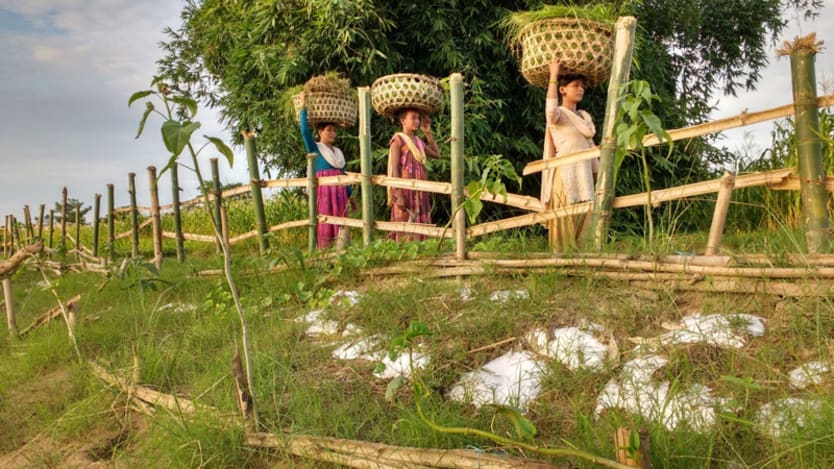
As extreme weather events become more commonplace, policymakers and development professionals are taking increasingly bold steps to build resilience in areas at risk of flooding.
Some initiatives focus on infrastructure, and some on financial risk management, while others build on the knowledge of local residents. Some rely on technology and data. Some on markets.
But they all seem to share a common focus on planning and preparedness.
Explaining a drainage infrastructure project backed by the World Bank in Dakar, Senegal, bank disaster risk management specialist Isabelle Celine Kane told Devex that the most urgent need was to resolve the immediate problem of flooding before moving onto other interventions.
“Now we realize that we need to invest in prevention,” she said, adding that the most important thing is to “improve urban planning.”
In a similar vein, Z Zurich Foundation Manager David Nash stressed the need to take a “holistic view” to implementing successful flood resilience measures. “There are a number of different aspects,” he said. “not just infrastructure.”
To highlight bold initiatives in flood resilience in the developing world, Devex surveyed experts from Z Zurich, the World Bank, Local Governments for Sustainability, and a global network of city halls. Here are just a few emblematic examples:
African Risk Capacity
The African Risk Capacity Insurance Company Limited is the most prominent of three “risk pooling” initiatives around the globe. A program of the African Union, the ARC provides insurance to countries against the risk of natural disasters. One early focus was on drought, but more recently the ARC has been crunching decades of satellite data to develop a model to provide flood insurance.
Developed in-house by a team of consultants working with the ARC, a technological model will be used to try to convince reinsurers to buy into the flood insurance scheme.
“It comes from an astonishingly large set of information,” said Simon Young, who recently stepped down as ARC’s CEO. “It is pretty technical, but we need to make sure that the reinsurers understand [as potential business partners].”
The scheme will be based on the concept of index insurance — when objective measurements of flood levels pass a certain point, payouts will be made. Details are being tweaked in talks with member countries and reinsurance companies. “We hope to be able to launch in 2017,” said Joanna Syroka, ARC’s research and development director.
The insurance arm of the ARC works in tandem with a purely developmental side of the organization that helps countries develop resilience to potential natural disasters.
Catbalogan Sky City mega project
Catbalogan is a city of over 100,000 on the western coast of the Philippine archipelago. Perennial storms bring predictable and chronic landslides and floods. No less than five typhoons hit during a two-year period covering 2013-2014, with hundreds forced into emergency shelters. Meanwhile, the lowland coastal downtown is highly congested.
In response, Mayor Stephany Uy-Tan decided to build a new city center on 440 hectares of land 120 meters above sea level. No car-centric planning here: Walking and cycling will be favored. The same goes for renewable energy: geothermal, wind, hydro and solar. Residents will be encouraged to tend to household gardens. Meanwhile, a man-made lagoon will serve as a reservoir to protect the old city center from flooding.
Uy-Tan has a sense of urgency: “I told the city council that it is now or never,” she said, adding that “every mayor should shift their priorities” to address the effects of climate change.
Dakar drainage
Many Senegalese cities suffer from flooding, with Dakar principle among them. One problem in the capital is that during the dry decades of the 1980s and 1990s rural migrants established informal settlements in traditional wetlands on the city’s outskirts. When the rains came in full force, as seen especially in 2009, hundreds of thousands of people found themselves surrounded by water.
In 2012, with support from the World Bank, national and local officials began to build a drainage system — taking advantage of natural waterways and gravity rather than pumps to ensure flows. Infrastructure included storm water drainage, wastewater treatment, resettlement, and capacity building for local water and sanitation workers.
Nepal communities
In Nepal, a project run by the U.K.-based nongovernmental organization Practical Action, backed by the Z Zurich Foundation, seeks to ensure market access for local producers, while helping community members develop alternative income sources.
Market access cuts across an entire range of activities, from physically raising walkways so that people can get their goods to market, to encouraging the cultivation of flood-resistant crops.
It also means working with humanitarian organizations that inadvertently disrupt markets when providing free handouts during a short-term crisis, thereby making it hard for local farmers to sell their outputs. Options include providing needy locals with vouchers to buy locally produced goods, to having international organizations buy directly from local farmers. “You have to understand how markets operate in a crisis,” said Chris Anderson, a Practical Action program manager.
Water Window
To encourage new ideas and actions in flood risk management, the Zurich Insurance Group has teamed up with the Global Resilience Partnership, a public-private initiative spearheaded by the Rockefeller Foundation, the United States Agency for International Development, and Sida, the Swedish development agency.
The GRP aims to flip the current aid and development “business as usual” approach on its head, by putting building resilience — rather than traditional response scenarios — front and center.
As part of its investment in a global flood resilience program, which aims to promote innovative solutions to problems facing flood-prone communities in the Sahel, the Horn of Africa, and South and Southeast Asia, the GRP’s Water Window challenge — backed by $10 million in funding from the Z Zurich Foundation — is currently assessing applications from teams of social entrepreneurs, community-based organizations, researchers, academic institutions, and international nonprofit and private sector organizations.
A selection of projects will be launched and funded over the next 18 months to demonstrate how taking a resilience approach enables different outcomes to this persistent issue.
Working on any equally bold initiatives to build resilience to flooding? Share your experiences by leaving a comment below.
#WaterWindow is an online conversation to amplify the discussion on flood resilience. Devex, together with its partners the Global Resilience Partnership and Zurich Insurance Group, aims to shine a light on innovative solutions to tackle the issues faced by communities worldwide. Join us.




